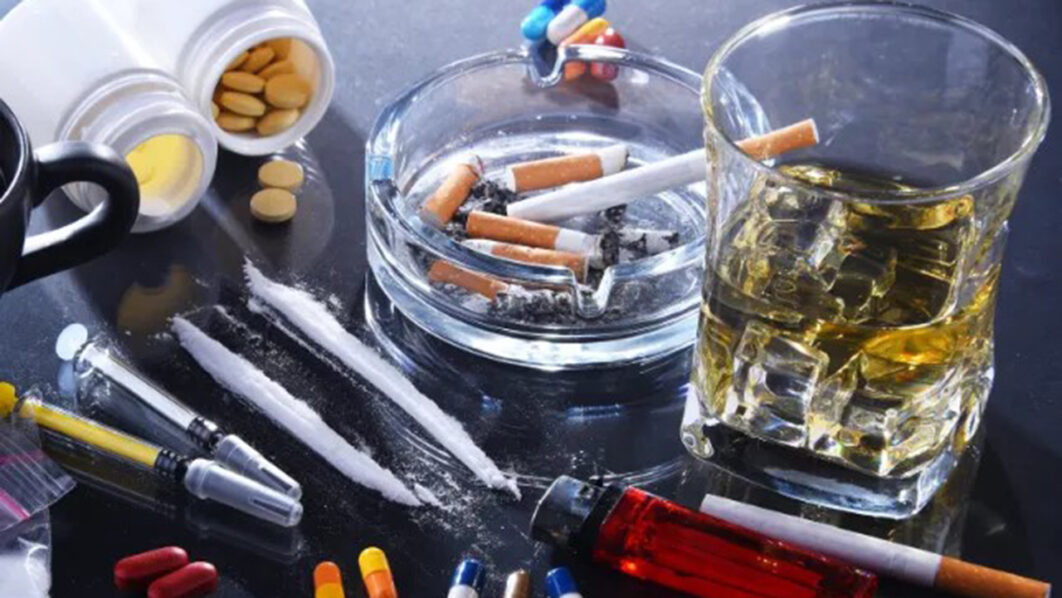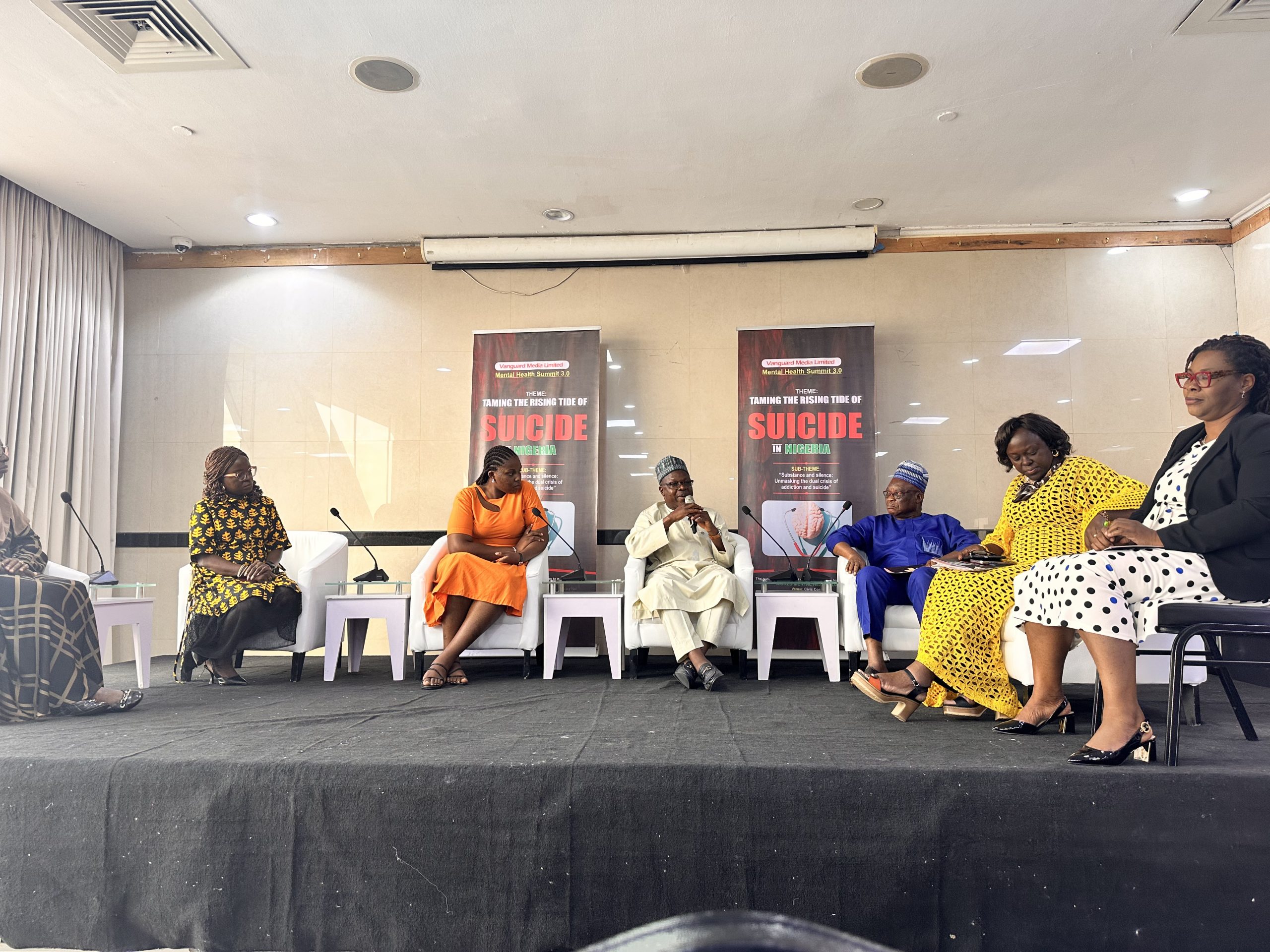
• Cannabis, opioids, addictive cough syrup top drugs list
• Nigeria becoming breeding ground for lunatics, say experts
• 90% of victims lack access to rehabilitation, psychiatric care
Mental health disorders are prevalent among Nigeria’s productive age due to growing psychoactive substance abuse and experts say lunacy and cardiovascular diseases top the list of illnesses, writes TINA ABEKU.
Concerns are growing about the impact of psychoactive substance abuse on the youth population, which could affect mental health, wellness and the economy of the country.
Statistics show that drug use in Nigeria is estimated at 14.4 per cent or 14.3 million people aged between 15 and 64 years, according to a survey by the United Nations Office on Drugs and Crime, (UNODC) and the National Bureau of Statistics (NBS).
The report stated that one in seven persons in Nigeria is involved in psychoactive substance abuse, pegging the age range for prevalence group between 15-64 years with one out of every four drug users being a woman.
Mental health professionals and practitioners have said that the consumption of illicit substances including cannabis, opioids, addictive cough syrup, tranquilizers, ecstasy, solvents and inhalants, and cocaine is leaving in its wake individuals with mental disorders and other health complications.
“The truth is that drug abuse is increasing in Nigeria” observed Ibrahim Yusuf-Gombe, mental health trainer and Convener, Drug-Free Arewa Movement and Convener Youth Action Network on Substance Abuse.
Referring to the National Drug Law Enforcement Agency (NDLEA), figures of 40 per cent of Nigerian youth using drugs, he said the situation has worsened, especially in the face of current economic hardship and peer pressure.
“Of the 40 per cent of youth involved in drug abuse, 97 per cent of them don’t have access to medical care as the treatment is costly. So, the health implications are heavy and require commitment to get people out of the scourge.
“As a survivor myself, I can tell you that everyone that was once into drugs must have some damages and scars for life; Either liver, kidney, scars in the body or physical damage to the eye and other parts of the body; there must be something that will keep reminding you of that life you once lived,” he said
Yusuf-Gombe pointed out that access to rehabilitation or some form of neuropsychiatric treatment to enable victims to live free of drug dependency remains a challenge due to the high cost of treatment and limited rehabilitation facilities.
He said: “90 per cent of those who are having drug-related problems or drug use disorder, do not have access to treatment because the treatment is expensive and some are afraid of going to psychiatric hospital for fear of being tagged mad people.
“Treatment in some facilities in Abuja costs as high as N1 million or N600,000 per month. If you are using a government facility, three months is about N400,000, so how can the poor afford it?
“Nigeria has a beautiful policy on drug abuse prevention and control, but it is not being implemented and many people don’t even know about it. The economy will continue to suffer because those who are supposed to champion economic development are wasting away due to drug disorders.
Experts observed that the National Drug Control Master Plan which is supposed to lead campaigns on drug prevention, drug treatment, and care has not been effectively implemented. Nigeria with about eight overburdened neuropsychiatric hospitals and grossly insufficient rehabilitation centres may have to resort to desperate measures to resolve the problem.
Some say Nigeria may go the way of Sierra Leone whose government declared a state of emergency on substance abuse to tackle substance abuse, which saw many dead bodies being exhumed in search of decomposing bones used in a concoction of inhalant known as Kush.
President, Association of Psychiatrists in Nigeria (APN), Prof Taiwo Obindo, revealed that “Only two out of 10 Nigerians have access to mental health care, and we have an increasing number of these cases, lot of them remains to be rehabilitated.
“Most of our hospitals do not have the unit to keep people that long and for those who are dependent on substances. The average minimum stay for them is about three months, some can stay for a whole year but the facilities for that are not there. So, we don’t have that luxury of keeping them that long.”
A major source of worry, Obindo pointed out is that creative alternative drug users now explore new psychoactive substances apart from the commonly known drugs. “This creative alternative increases the use of substance and mental health issues, from the abuse to dependency and psychotic symptoms.
The president observed that substance abuse is a major driver of insecurity; armed robbery, kidnappings, and banditry. “The use of substances has been implicated in insecurity because crime generally tends to increase with the use of substances.
Regarding disease exposure, access and affordability of treatment, he said those who smoke are more prone to lung cancers, right from the lips to the throat. “They are more prone to developing cancer of the lips, cancer of the throat and cancer of the lungs.”
He listed other health complications or drug use disorders including cardiovascular diseases such as hypertension, heart failure, diabetes, and blood infections. In the endocrine system, people tend to develop diabetes.”
Chairman and Chief Executive Officer, NDLEA, retired Brigadier General Buba Marwa, who also blamed the spate of insecurity on substance abuse, called for society’s approach to curb the scourge of drug abuse.
Speaking at a two-day training on Drug Prevention Treatment and Car, (DPTC), organised by the agency for spouses of state governors to tackle drug abuse at the grassroots, Marwa insists that the War Against Drug Abuse (WADA), is a collective war and can only be won when all hands are on deck. “Together, we can effect meaningful change and create healthier and safer communities for all.
“Your collective effort can become the biggest catalyst for the nation to triumph over the illicit drug challenge,” he declared.
MEANWHILE, concerned Nigerians are calling for strong political will and an extensive public enlightenment campaign to save Nigeria from the devastating impacts of illicit substance abuse.
Mrs Chidozie Ann told The Guardian that her in-law’s son abroad was deported to Nigeria due to mental issues arising from drug abuse. She said “The boy was doing fine when he left to further his education abroad but later became ill. I discovered he is now tied in chains and locked up at home because he went mad. It was a difficult time for everyone to see such a bright child become a lunatic because of drug use.”
Worried by the growing statistics, Nigeria’s first lady, Senator Remi Tinubu, in her speech at the NDLEA meeting with wives of the states’ governors, said: “Nigerians must recognise that drug abuse is not just a law enforcement issue but a public health crisis that requires a compassionate and multi-faceted response.
“We must challenge the stigma and discrimination associated with addiction and foster a culture of empathy, understanding and solidarity towards those struggling with substance use disorders.”
Tinubu while highlighting the role of stakeholders in curbing the impact of drug abuse in Nigeria said: “We understand the profound impact that drug abuse can have on our children’s lives.”
Experts have insisted that prevention measures start from the individual level, urging the youth to shy away from experimenting with drugs and from peer pressure, which has lured many into drug use and abuse.
Head of the Psychiatry unit at the National Hospital Abuja, Dr Sola Oluwanuga, said: “Substance abuse impacts on mental health and the cases are numbered in their thousands.”
Obindo and Yusuf-Gombe want communities to take responsibility for being each other’s keepers by taking those affected to hospitals, not police stations.They said governments across all levels must reduce economic hardship and show the political will to drive efforts towards ending the scourge in partnership with Civil Society Organisations, (CSOs) and schools.
“Let the children know the implications of their actions without putting them under unnecessary pressures but we must not overindulge them too, early discovery improves chances of a better outcome.
“Government should make more provisions. Maybe rather than setting up new psychiatric hospitals, they should equip the teaching hospitals more for the treatment and management of substance use disorder. Philanthropists can also help in building drug units,” Obindo recommended.






